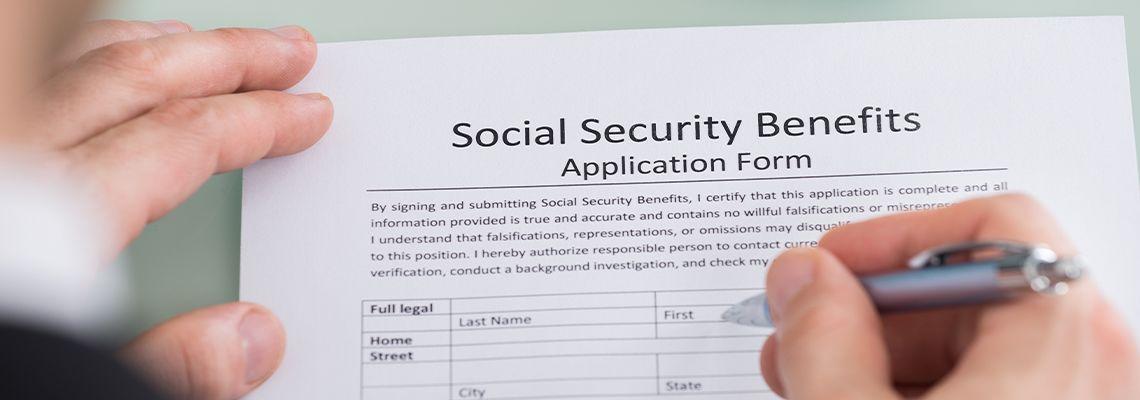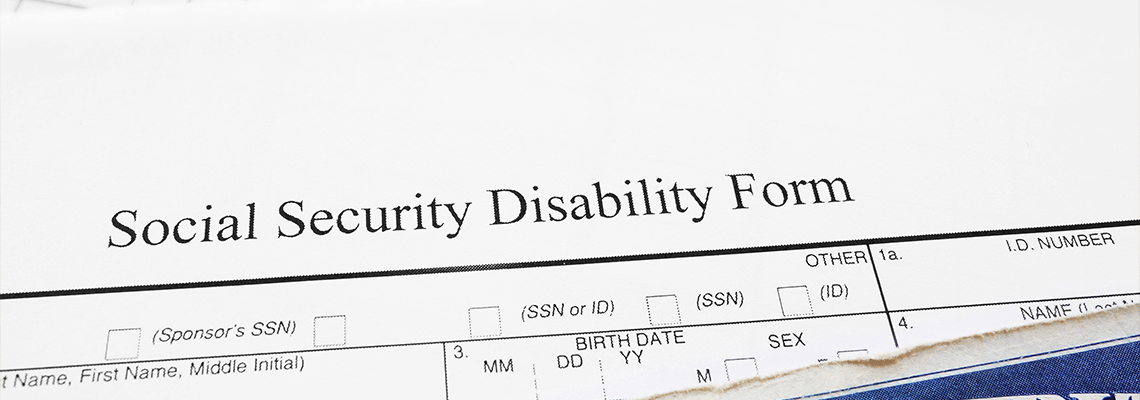Table of Contents
Securing SSD benefits can be complicated, with numerous steps that require careful attention. At Gordon, Wolf & Carney, we make it easier for you. With over a century of combined legal experience, our team serves clients in Towson, Maryland, as well as throughout the United States.
We provide personalized, high-quality representation for every client. Our team will work closely with you to understand your situation, gather evidence, and build a strong case on your behalf. In addition to the initial application process for SSD benefits, we also assist clients with appeals if their claim is denied.
What is SSDI?
Social Security Disability Insurance (SSDI) is a federal program that provides financial assistance to individuals who cannot work due to a qualifying disability. This program supports those who have paid into the Social Security system through payroll taxes and have accumulated enough work credits.
SSDI benefits are available to disabled workers under the age of 65 and their dependents, so that recipients and their families have a source of income when the primary earner is unable to maintain employment due to a significant health condition.
The program serves those who have a medically determinable impairment that is expected to last for at least one year or result in death.
To qualify for SSDI, applicants must meet certain criteria established by the Social Security Administration (SSA). Apart from having a qualifying disability, individuals must have a sufficient work history that involves significant participation in jobs where Social Security taxes have been paid.
The application process requires detailed documentation, including medical records and work history, to demonstrate the severity and impact of the disability.
When Will You Start Receiving Benefits?
Once you have gone through the application process and your claim for SSDI is approved, benefits will commence following a mandatory five-month waiting period. This period begins at the onset of your disability and applies to all SSDI claimants.
Typically, the first payment will be made in the sixth month after the disability onset is recognized. The timing can vary depending on how quickly the Social Security Administration processes your application. In some cases, delays can occur, which may affect when you receive your first benefit payment.
Overview of the SSD Process
The process of applying for Social Security Disability benefits generally involves several stages:
- Initial application: Fill out an application through the Social Security Administration (SSA) detailing your work history, medical condition, and how it affects your ability to work. The SSA reviews your application, which typically takes 3 to 5 months.
- Reconsideration: If denied, you have 60 days to request a reconsideration. An SSA representative re-evaluates your case, taking another 3 to 5 months.
- Hearing with an Administrative Law Judge (ALJ): Should your reconsideration request be denied, you may appeal to have a hearing before an ALJ. This stage can take considerably longer, often 12 to 18 months.
- Appeals Council review: If your application is denied during the hearing stage, you can request your case be reviewed by the Appeals Council. This can potentially add several more months to your timeline.
- Federal court review: The final step, if necessary, is a federal court review. This is often the longest and most complicated phase.
- Filing a new claim: If your claim is denied at all previous levels and you have new evidence to present, you may choose to file a new application. This allows you to reintroduce your case with additional documentation that was not available during your initial claim.
- Continuous medical evaluation: Even after approval, your case may be subject to periodic reviews to ensure you continue to qualify for benefits. These evaluations assess if there have been significant changes in your medical condition that could affect your eligibility.
SSD Laws in Maryland
In Maryland, the laws governing Social Security Disability benefits largely mirror federal guidelines. Some common laws you should consider before filing for SSDI include:
- Maryland residents are required to file their initial application with the SSA, like everyone else, but local field offices handle the preliminary processing.
- Decisions regarding disability claims may also consider state-specific health and welfare data.
- Maryland law provides local resources and advocacy groups for individuals with disabilities, which can be useful during the application process.
- The state offers free legal aid services to help low-income individuals understand and handle SSD claims.
- Maryland Disability Determination Services (DDS) is the agency responsible for making initial decisions on disability claims after SSA processing. It ensures that all state-specific procedures are adhered to.
- The state encourages regular training for healthcare providers on the documentation requirements of the SSA, improving the accuracy and completeness of medical records needed for applications.
- Local vocational rehabilitation programs in Maryland provide support for individuals seeking to return to work, offering benefits counseling and job placement services that align with SSD guidelines.
Social Security Disability Attorneys Serving Clients Nationwide
At Gordon, Wolf & Carney, our experienced attorneys bring over a century of collective legal experience, with comprehensive knowledge of the law and courts. This allows us to help clients across the United States address complicated tort, contract, and Social Security disability matters.
Our firm embodies knowledge, experience, and a genuine commitment to helping our clients achieve their deserved outcomes. Located in Towson, Maryland, and serving clients nationwide, call us for help with your SSDI case.










